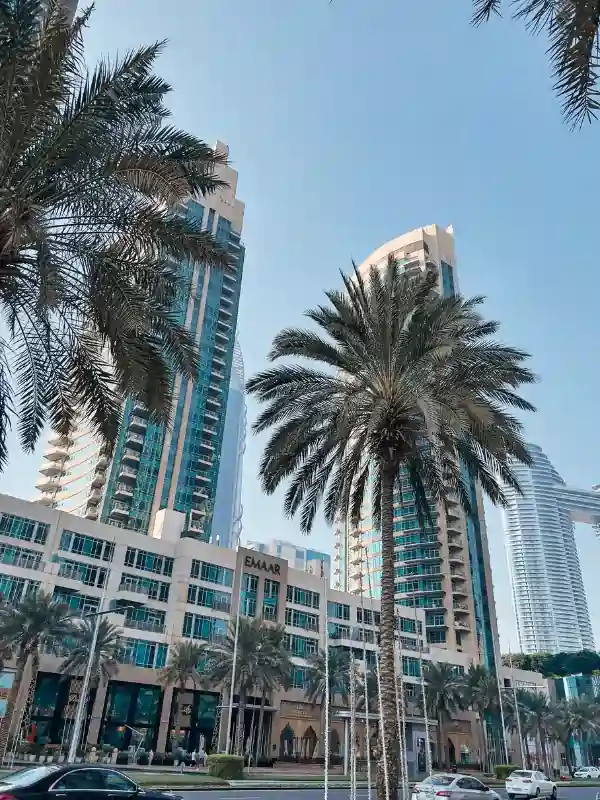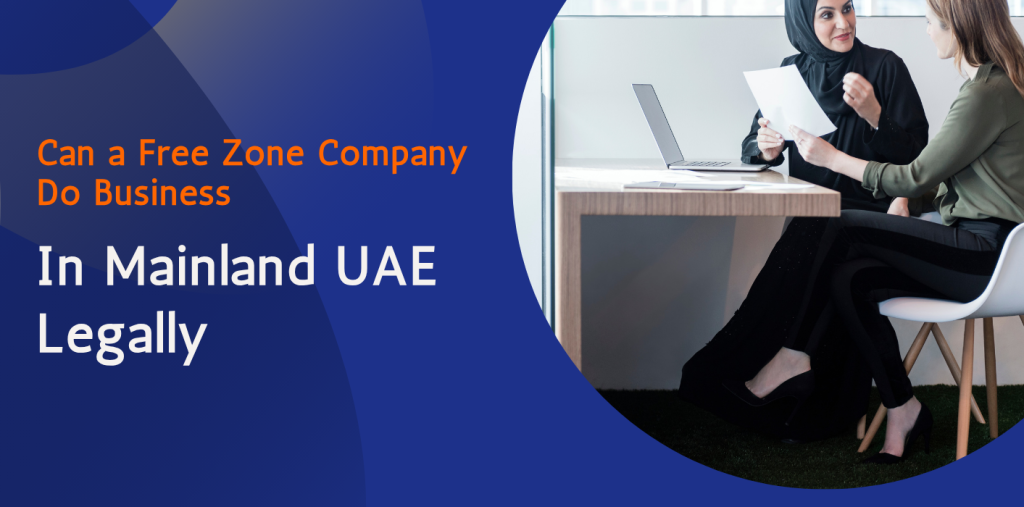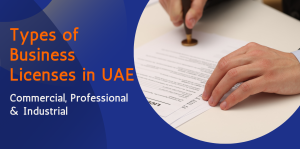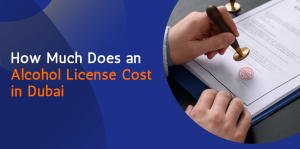Operating a Free Zone company in Dubai offers significant advantages: full foreign ownership, tax benefits, and simplified administration. However, until recently, businesses were restricted from engaging directly with mainland clients without intermediaries, often incurring distributor commissions of up to 25 per cent.
That framework has now been redefined. On 3 March 2025, Crown Prince Sheikh Hamdan introduced Executive Council Resolution No. 11 of 2025, establishing a clear legal basis for Free Zone businesses to conduct operations within the mainland.
This blog explains what the new resolution means for your business and whether it’s worth making the shift.
Dubai’s dual business framework
Dubai operates two parallel business jurisdictions; each is designed for different strategic purposes. Understanding this structure is essential before exploring how Resolution 11 bridges them.
Free Zones: Tax efficiency meets ownership flexibility
Dubai’s Free Zones offer compelling advantages that have driven remarkable growth. From early 2021 to November 2024, Free Zone licenses surged 200%, from under 70,000 to over 210,000. Dubai alone holds 112,000+ free zone licenses, representing 53% of all UAE free zone licenses. The value proposition is straightforward:
- 100% foreign ownership without local sponsors. This was historically unavailable for mainland companies, though recent reforms have expanded mainland ownership options as well.
- Zero corporate tax for qualifying entities, compared to the 9% mainland rate on profits exceeding AED 375,000.
- Duty-free operations within zones, creating cost advantages for trading and logistics businesses.
- Rapid setup timelines averaging 5-10 business days, with packages starting around AED 6,000.
- Flexible workspace options including virtual offices and flexi-desks, eliminating mandatory physical office requirements.
Dubai’s major Free Zones, including DMCC, JAFZA, Dubai Silicon Oasis, and Dubai Healthcare City, target specific industries from technology to healthcare.
Mainland: Unrestricted access at a premium
Mainland companies, registered through the Department of Economic Development (DED), operate under different rules with distinct advantages:
- Unrestricted operations across all seven Emirates without territorial limitations.
- Government contract eligibility an opportunity exclusively available to mainland entities.
- Direct market access to all Dubai and UAE customers without intermediaries.
However, these benefits come with higher costs: licensing fees typically run AED 12,000-15,000+, physical office space is mandatory, and compliance requirements include annual audited financials. The 9% corporate tax on profits above AED 375,000 also applies.
The previous limitation
Until March 2025, Free Zone companies were not permitted to trade directly in the mainland. Businesses overcame this restriction through costly alternatives:
- Local distributors took 15-25% commissions on every transaction, eroding margins and customer relationships.
- Dual company structures doubled licensing costs and created complex intercompany accounting requirements.
- No Objection Certificates (NOCs) from select Free Zones offered limited relief but came with significant restrictions and scalability challenges.
The Economic Rationale: Dubai’s D33 Vision
Under the Dubai Economic Agenda D33, the Emirate aims to double its economy to AED 32 trillion over the next decade, driven by boosting foreign trade, FDI inflows, and productivity. Yet one structural bottleneck remained: Free Zone firms contributing immense economic value couldn’t sell directly within Dubai itself.
Resolution 11 removes this limitation, aligning regulatory structure with economic ambition and enabling more integrated growth.
Executive Council Resolution No. 11 of 2025
Since March 3, 2025, Free Zone companies across Dubai have gained legal pathways to mainland operations. After seven months of implementation, the framework has proven both practical and accessible.
The resolution applies to companies in Dubai’s Free Zones with one notable exception: the Dubai International Financial Centre. DIFC operates under its own independent legal framework with specialised financial services regulations and a separate judicial system, so it remains outside this framework.
For everyone else, from DMCC to JAFZA to Dubai Healthcare City, the resolution provides three distinct authorization options.
The compliance obligations
Free Zone companies must:
- Comply with all mainland regulations applicable to your business activities, including sector-specific rules.
- Maintain separate financial records for mainland operations, distinct from Free Zone accounts. Regulators require clear financial separation.
- Obtain additional licenses for operations outside Dubai. This resolution covers the Dubai mainland only; other Emirates require separate authorization.
- Submit to joint oversight from the Department of Economy and Tourism (DET) and your Free Zone authority. Non-compliance results in fines, penalties, or the revocation of authorization.
Businesses already operating in the mainland (before the resolution) must regularize their status by March 3, 2026, the one-year compliance deadline. DET may grant one-time extensions, but applications must be submitted before the initial deadline.
By September 3, 2025, DET published the approved activities list, specifying which business activities qualify for branch licenses versus temporary permits. Not all activities received immediate approval, so verification against the official list is essential.
Three authorization pathways: Choosing your market entry strategy in the mainland
Resolution 11 outlines three methods for Free Zone companies to access mainland markets. Each option addresses various operational requirements and investment amounts.
Option 1: Branch license with physical mainland presence
Annual Cost: AED 10,000 license + office rental (typically AED 20,000-50,000+)
Validity: 12 months, renewable annually
Legal Status: Extension of parent Free Zone company (not a separate legal entity)
This option establishes a physical branch office in mainland Dubai. The branch operates under your Free Zone company’s name, with the parent company retaining full legal responsibility.
Requirements include:
- Physical office space in mainland Dubai with valid tenancy contract
- Valid Free Zone trade license
- Approval from your Free Zone authority
- Memorandum of association
- Manager’s identification documents
- Sector-specific regulatory clearances where applicable
Strategic fit:
This pathway suits businesses requiring physical mainland presence. Retail operations needing storefronts, showrooms requiring high-traffic locations, and client-facing services where customers expect to visit, these scenarios justify the additional office investment.
For companies with substantial mainland revenue projections (AED 500,000+), the office cost becomes proportionally insignificant relative to the market opportunity.
Option 2: Branch license operating from Free Zone
Annual Cost: AED 10,000
Validity: 12 months, renewable annually
Physical Location: Free zone only (no mainland office required)
This option provides full mainland market authorization while operating entirely from your existing Free Zone premises. Same legal authorization, same activity scope, but without mainland office expenses.
Key advantages:
- Eliminates mainland office rental costs entirely
- Maintains operational efficiency in a single location
- Provides full mainland market access
- Enables lower-risk market entry
Strategic fit:
This pathway benefits e-commerce businesses fulfilling mainland orders from Free Zone warehouses, B2B service providers (consulting, IT, professional services) serving clients remotely, SaaS and technology companies operating digitally, and trading entities that don’t require physical mainland visibility.
For businesses asking can Free Zone company do business in mainland while optimizing costs, this represents the most efficient solution. You gain full market access for AED 10,000 annually, no additional infrastructure investment required.
Option 3: Temporary activity permit
Cost: AED 5,000
Validity: Up to 6 months (non-renewable, but convertible to full license)
Scope: Specific, time-limited activities
The temporary permit authorizes limited mainland operations for specific projects or market testing purposes. It’s not renewable in the traditional sense; after six months, you either convert to a full branch license or cease mainland operations.
Requirements include:
- Detailed description of activities and project scope
- Clear timeline with deliverables
- Client contracts or letters of intent
- Approval from both DET and your Free Zone authority
Strategic fit:
This option suits businesses testing mainland market demand before committing to permanent infrastructure, companies with short-term project contracts, seasonal operations with time-limited activity, and pilot programs exploring new market segments.
The six-month timeframe provides sufficient data for informed decision-making about long-term mainland investment.
Cost and return on investment
Understanding the financial implications is essential when assessing mainland expansion. Resolution 11 greatly lowers the entry costs compared to traditional distributor setups.
Traditional distributor model (before March 2025):
- Mainland revenue: AED 500,000
- Average distributor commission (20%): AED 100,000
- Net revenue retained: AED 400,000
Branch licence model (after March 2025):
- Mainland revenue: AED 500,000
- Annual branch licence cost: AED 10,000
- Net revenue retained: AED 490,000
- Annual savings: AED 90,000
Return on investment:
A company breaks even with a branch licence at approximately AED 50,000 in mainland revenue. Beyond this point, additional income directly increases net profit.
Temporary permit model:
- Cost: AED 5,000 for up to six months
- Break-even threshold: around AED 25,000 in mainland revenue for short-term or pilot projects.
At higher volumes, the cost efficiency becomes even more evident. For instance, a company generating AED 2 million in mainland sales could save nearly AED 390,000 annually compared to the previous distributor-based model.
Use Stratrich’s Cost Calculator to estimate your own potential savings.
Who benefits most?
- E-commerce companies: Direct fulfilment from Free Zone warehouses.
- Professional services: Legal, IT, and marketing firms can now contract mainland clients directly.
- Technology & SaaS: Seamless operations without needing physical presence.
- Trading houses: Eliminate distributor markups and increase competitiveness.
- Healthcare & education: Establish mainland facilities while keeping Free Zone advantages.
Resolution 11 removes this limitation, aligning regulatory structure with economic ambition and enabling more integrated growth.
Which option should you actually choose?
The question isn’t just “can freezone company do business in mainland,” but which pathway optimizes your specific business model.
Choose the physical branch when:
Your industry requires customer-facing locations. You’re in retail, healthcare, education, or services where clients expect to visit you. Your mainland revenue projections (AED 1 million+) justify the office investment. You’re building long-term brand presence in mainland markets.
Choose the branch from Free Zone when:
Your operations are digital or remote service focused. You’re in e-commerce, B2B services, SaaS, or trading where physical location doesn’t impact service delivery. Cost optimization is a priority. You want to test mainland markets before infrastructure commitment. This option provides maximum value for most businesses.
Choose the temporary permit when:
You’re validating market assumptions before permanent investment. You have a specific 3-6 month project or contract. You’re exploring seasonal opportunities. You want to minimize financial risk during initial market entry. After six months, you can convert to a full license if validation succeeds.
Conclusion
Executive Council Resolution No. 11 of 2025 is a genuine breakthrough. It officially allows Dubai’s Free Zone businesses to engage directly with mainland customers, eliminating inefficiencies and unlocking new growth potential.
Can a Free Zone company do business in the mainland? Yes, clearly and legally. The more vital question is: Which pathway best suits your business?
Not sure where to start? Consult with a Stratrich business setup advisor to assess costs, compliance, and the fastest route for your expansion.








